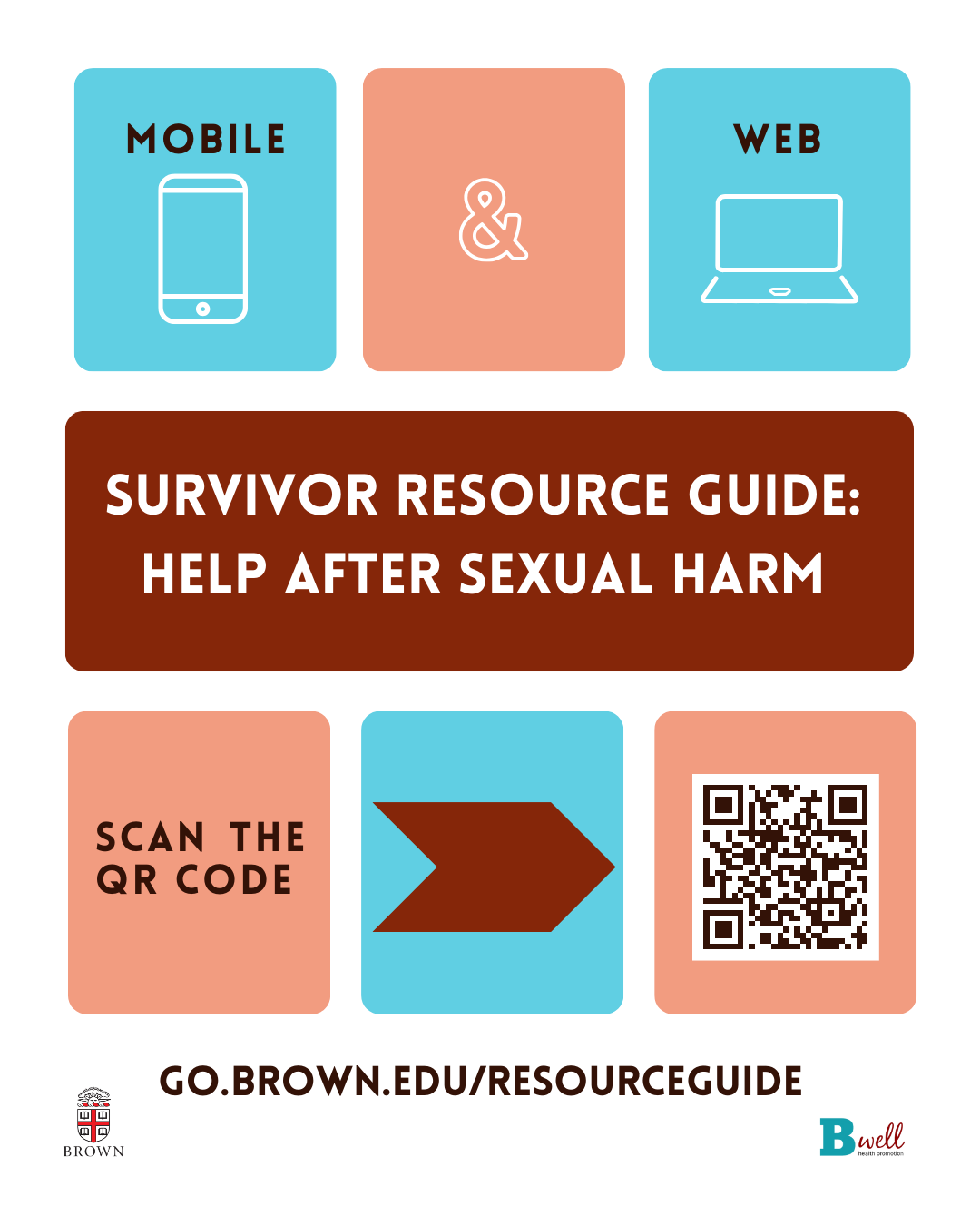BWell SHARE Advocates, 401.863-2794, [email protected], Ground Level of Health & Wellness Center, 450 Brook St
The SHARE (Sexual Harm Acute Response & Empowerment) Advocates in BWell Health Promotion are confidential resources at Brown that can provide support to any student from any part of the University (undergraduate, graduate, and medical students) affected by issues or experiences related to: Sexual Assault, Sexual and/or Gender-based Harassment, Domestic/Dating Violence, Relational Abuse, or Stalking, that has taken place at any time in their lives. Confidential services include acute responses or ongoing empowerment-based support for a survivor or the friends of a survivor, including help filing a complaint (if that is the student's choice) and/or navigating resources at Brown and in the community.*This is a survivor-centered resource for people who have experienced sexual harm.
Sexual Assault Response Line 401.863-6000
Confidential crisis support and information is available for any Brown student dealing with sexual assault. The on-call counselor is also available to accompany a victim to the hospital.
Counseling and Psychological Services 401.863-3476
Clinicians provide confidential crisis support, follow-up appointments, and 24-hour on-call services for any Brown student who has been impacted by sexual violence. Located on the First Floor of the Health & Wellness Center, 450 Brook St.
Brown Department of Public Safety 401.863-4111 (emergency response).
Emergency response available 24 hours a day, 7 days a week. You may also call Public Safety's administrative number, 401. 863-3322, for non-urgent matters, questions, or complaints.
University Health Services 401.863-3953
Confidential medical care, testing and treatment. Emergency contraceptive pills and treatment for sexually transmitted infections are available. Located on the First Floor of the Health & Wellness Center, 450 Brook St.
Sexual Assault & Domestic Violence Hotline 1-800-494-8100
If you or someone you know needs help because of a sexual assault or an abusive relationship, call this hotline 24 hours a day. Counselor-advocates provide confidential support and are available to accompany victims of sexual assault to the hospital and police station. Ongoing counseling and support groups are available. (This hotline is specific to Rhode Island. Contact the National Sexual Assault Hotline at 1-800-656-HOPE if you need help in another state.)







